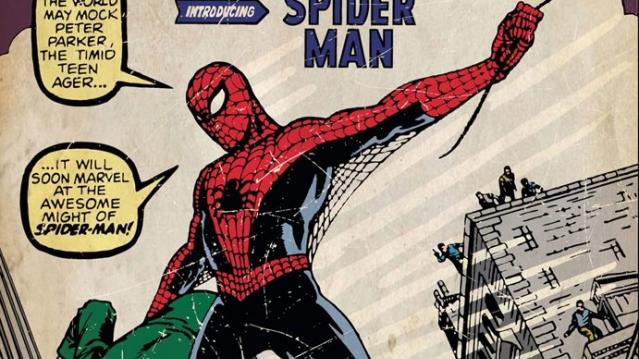The New Spider-Man: Sony and Marvel Bet Big on Tom Holland

After much speculation and debate, Marvel has finally revealed who will play Peter Parker in its next Spider-Man reboot — and it’s not a name you’ll be likely to recognize: 19-year-old Tom Holland.
Who? Exactly.
Significantly more cherubic than the last two stars cast in the role — Tobey Maguire and Andrew Garfield — Holland appeared in the 2012 movie The Impossible and had a stint in the title role of the London production of Billy Elliott. Now he’ll be the web-slinging superhero, starting with a relatively small role in next year’s Captain America: Civil War and then in an as-yet-unnamed Spider-Man movie.
Marvel had said they would be casting someone more in line with Spidey’s actual age. In the comics and films, Parker is ostensibly an 18-year-old high school senior, but Maguire was 27 when he first donned the mask, while Garfield was 28.
Related: Sony Spins a New Spider-Man Strategy with Disney
The very fact that Marvel was able to cast anyone in the role at all was thanks to a protracted negotiations with Spider-Man’s cinematic rights-holder, Sony. Finally clinching this deal allows Marvel to bring have Spider-Man play his pivotal and necessary role in Civil War, a comic-book story arc adored by critics and fans alike.
But as much as fans might have riding on Holland’s Spider-Man, Marvel and Sony are counting on him even more: They’re effectively betting hundreds of millions of dollars on the little-known actor, and hoping he can breathe new life into a franchise that, while is generated $1.5 billion in U.S. box office sales and about $4 billion worldwide, has seen dwindling returns over time.
The first Spider-Man movie starring Holland is slated to be released on July 28, 2017.
Spider-Man (2002): $403,706,375
Spider-Man 2 (2004): $373,585,825
Spider-Man 3 (2007): $336,530,303
The Amazing Spider-Man (2012): $262,030,663
The Amazing Spider-Man 2 (2014): $202,853,933
Increasing Number of Americans Delay Medical Care Due to Cost: Gallup

From Gallup: “A record 25% of Americans say they or a family member put off treatment for a serious medical condition in the past year because of the cost, up from 19% a year ago and the highest in Gallup's trend. Another 8% said they or a family member put off treatment for a less serious condition, bringing the total percentage of households delaying care due to costs to 33%, tying the high from 2014.”
Number of the Day: $213 Million

That’s how much the private debt collection program at the IRS collected in the 2019 fiscal year. In the black for the second year in a row, the program cleared nearly $148 million after commissions and administrative costs.
The controversial program, which empowers private firms to go after delinquent taxpayers, began in 2004 and ran for five years before the IRS ended it following a review. It was restarted in 2015 and ran at a loss for the next two years.
Senate Finance Chairman Chuck Grassley (R-IA), who played a central role in establishing the program, said Monday that the net proceeds are currently being used to hire 200 special compliance personnel at the IRS.
US Deficit Up 12% to $342 Billion for First Two Months of Fiscal 2020: CBO

The federal budget deficit for October and November was $342 billion, up $36 billion or 12% from the same period last year, the Congressional Budget Office estimated on Monday. Revenues were up 3% while outlays rose by 6%, CBO said.
Hospitals Sue to Protect Secret Prices

As expected, groups representing hospitals sued the Trump administration Wednesday to stop a new regulation would require them to make public the prices for services they negotiate with insurers. Claiming the rule “is unlawful, several times over,” the industry groups, which include the American Hospital Association, say the rule violates their First Amendment rights, among other issues.
"The burden of compliance with the rule is enormous, and way out of line with any projected benefits associated with the rule," the suit says. In response, a spokesperson for the Department of Health and Human Services said that hospitals “should be ashamed that they aren’t willing to provide American patients the cost of a service before they purchase it.”
See the lawsuit here, or read more at The New York Times.
A Decline in Medicaid and CHIP Enrollment

Between December 2017 and July 2019, enrollment in Medicaid and the Children's Health Insurance Program (CHIP) fell by 1.9 million, or 2.6%. The Kaiser Family Foundation provided an analysis of that drop Monday, saying that while some of it was likely caused by enrollees finding jobs that offer private insurance, a significant portion is related to enrollees losing health insurance of any kind. “Experiences in some states suggest that some eligible people may be losing coverage due to barriers maintaining coverage associated with renewal processes and periodic eligibility checks,” Kaiser said.


